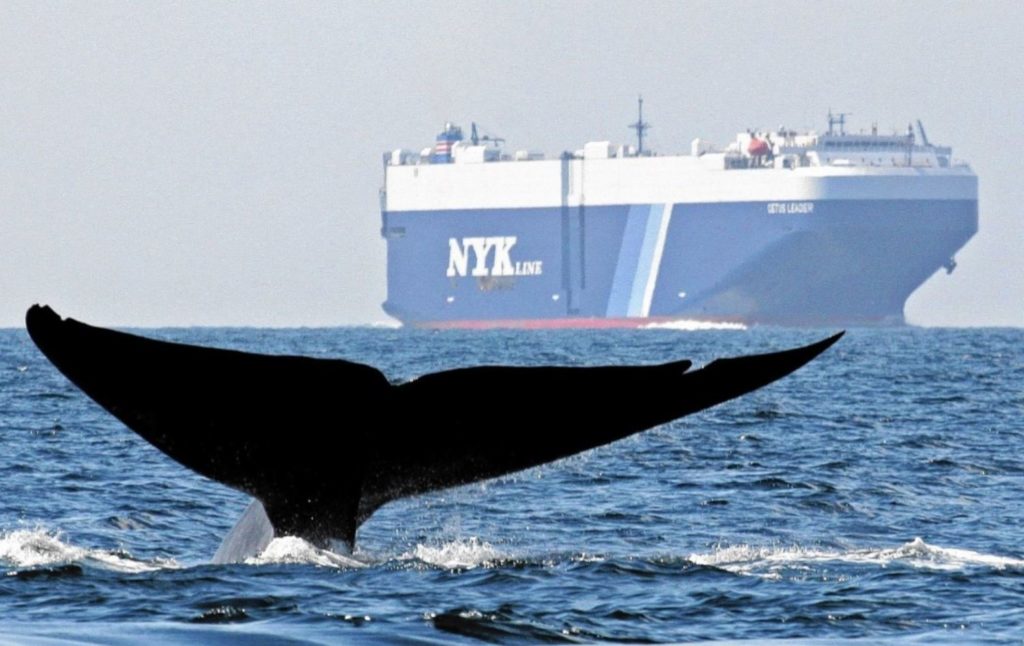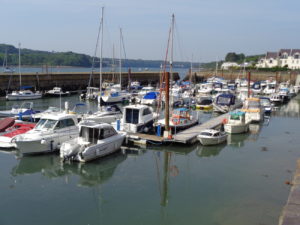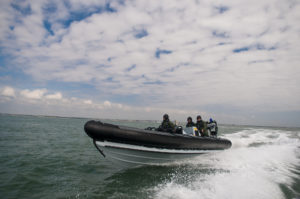Commercial shipping told to slow down – whales feeding

Dozens of migrating blue whales have stopped to feed in the krill-rich waters off the Farallones Islands, triggering a warning from federal maritime officials to commercial shipping companies to be on the lookout for the massive marine mammals.
Maria Brown, Superintendent of the Greater Farallones National Marine Sanctuary, issued the warning after biologists sighted at least 47 blue whales over a single one-hour period on June 13. Observers the day before spotted 23 whales, according to CBS Local San Francisco.
“The sanctuaries are working with the U.S. Coast Guard to notify mariners to be on the lookout for the whales, and maintain slow speed and maximum possible distance to avoid deadly collisions,” says Brown.
“It’s extraordinary. It may be an absolute record,” says NOAA Greater Farallones spokeswoman, Mary Jane Schramm. “Essentially, the driver here is krill and that’s the food they feed upon this time of year, and we have it in such great abundance in the marine sanctuary that the blue whales have apparently targeted our water specifically to feed.”
Blue whales — the largest animal on the planet — are listed as endangered under the Endangered Species Act. The Eastern North Pacific population, the West Coast stock of blue whale populations, has seen no significant increase since the early 1990s, despite being protected.
“Their enormous size dictates that they maximise feeding effort when food is available, and this sometimes takes them into dangerous waters,” says NOAA. “While focused on feeding, they are not likely to recognise or evade a ship’s approach.”
Last year, at least four whale carcasses washed up on Bay Area beaches, the victims of fatal collisions with freighters and tankers according to CBS Local San Francisco.










